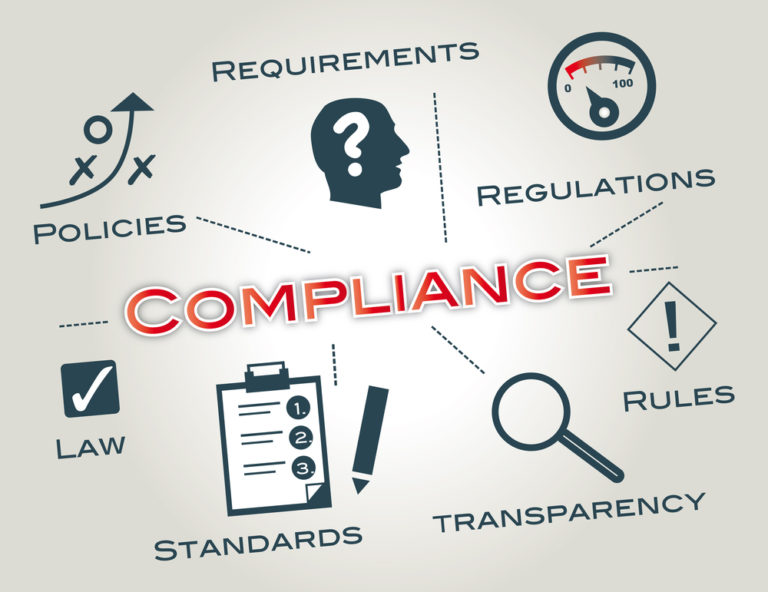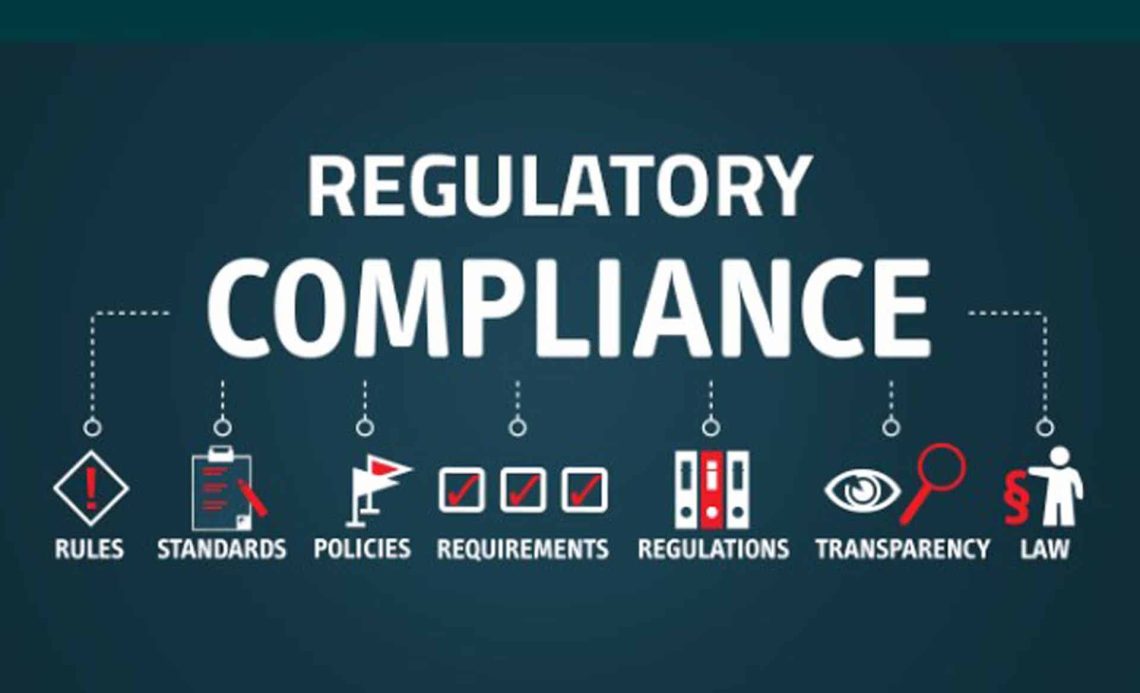Why It Matters and How to Stay Ahead ?
In the complex landscape of modern business, regulatory compliance has emerged as a critical component for organizations across various industries. As the number of rules and regulations has multiplied in the 21st century, compliance management has become increasingly significant, leading to the establishment of key roles such as corporate compliance officers and managers. This article explores the importance of regulatory compliance, the challenges associated with it, and how companies can ensure adherence to the ever-evolving regulatory landscape.

The Importance of Regulatory Compliance
Guidance for Business Goals:
Regulatory compliance processes and strategies serve as a guiding framework for organizations in their pursuit of business goals. They provide a roadmap for businesses to navigate through intricate legal mandates and applicable laws.
Marketability and Trust:
Compliance audit reports act as a testament to an organization’s adherence to regulations, enabling companies to market themselves effectively. For example, Service Organization Control 1 (SOC 1) reports allow vendors to showcase compliance with regulations like the Sarbanes-Oxley Act (SOX). Transparency about compliance processes helps build trust with clients, potentially enhancing the company’s profitability.
Data Protection and Customer Trust:
Certain compliance rules are designed to ensure data protection. In an era of increasing data breaches, compliance with regulations becomes crucial to maintain customer trust and avoid negative impacts on the company’s bottom line. Mandates like the General Data Protection Regulation (GDPR) and the California Consumer Privacy Act (CCPA) focus on safeguarding personal data.
Challenges in Regulatory Compliance
Repercussions of Noncompliance:
Companies failing to adhere to mandatory regulatory compliance practices face severe repercussions. This may include participation in remediation programs, on-site compliance audits, inspections by regulatory agencies, monetary fines, and penalties. Repeated or significant compliance breaches can also damage brand reputation.
Financial Challenges:
Compliance adherence can be financially demanding, requiring investments in infrastructure and personnel. This challenge is particularly acute in highly regulated industries like finance and healthcare. Businesses must strike a balance between meeting compliance requirements and maintaining profitability.
Business Strategy-Associated Challenges:
Meeting compliance extends beyond financial aspects. Organizations must anticipate how emerging regulations will influence business direction and existing models. Developing a compliance culture throughout the organization, hiring for compliance roles, and aligning legal, audit, and business departments pose additional challenges.
Technological Trends:
Evolving consumer technologies introduce compliance complications. The use of personal mobile devices in the workplace and the proliferation of the internet of things (IoT) create security concerns. Staying compliant requires continuous updates and immediate patching of software vulnerabilities.
Compliance Across Industries and Countries
Industry-Specific Regulations:
Different industries face varying degrees of regulatory scrutiny. For example, the financial services industry is heavily regulated to protect the public and investors. Energy suppliers adhere to safety and environmental protection regulations. Healthcare companies must comply with strict laws due to the sensitive patient data they handle.
Country-Specific Regulations:
Regulatory compliance mandates vary by country. While the Sarbanes-Oxley Act (SOX) is a U.S. legislation, Germany has the Deutscher Corporate Governance Kodex (DCGK), and Australia follows the Corporate Law Economic Reform Program Act 2004 (CLERP 9). Multinational organizations must be aware of and comply with the regulations of each country they operate in.
Global Data Privacy Laws:
Data privacy-specific regulations like GDPR and CCPA have a global impact. GDPR, applicable to all data produced by EU citizens, mandates transparency and expanded data privacy rights. Multinational companies must navigate a complex web of regulations to ensure compliance.
Ensuring Regulatory Compliance
Identify Applicable Regulations:
Understand the regulations that apply to the industry and operations of your organization. This includes federal, state, and municipal rules.
Determine Requirements:
Identify and plan the implementation of relevant requirements within each regulation applicable to your organization.
Document Compliance Processes:
Clearly document compliance processes with specific instructions for each role involved. This documentation aids in internal and external audits.
Monitor Changes:
Regularly monitor changes in compliance requirements and assess their relevance to your organization. Implement updated procedures and train staff accordingly.
In-House and External Audits:
Conduct regular in-house compliance audits to review adherence to guidelines. These audits help prepare for external audits conducted by independent third parties. These external audits are often required under specific compliance mandates.
In conclusion, regulatory compliance is a multifaceted challenge that demands continuous attention from organizations. By understanding the importance of compliance, acknowledging industry and country-specific variations, and implementing effective compliance strategies, businesses can navigate the complex regulatory landscape successfully. As technological trends evolve, staying ahead of compliance requirements will be crucial for building trust, ensuring data protection, and sustaining long-term business success in an ever-changing regulatory environment.






